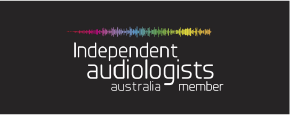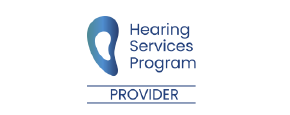Are you looking for a hearing test in Kallangur?
Are you having difficulty communicating? Our expert audiologists at Hearing Help can help improve your hearing clarity. Book your consultation today and reconnect with the sounds and people you love!
Hearing Test in Kallangur Brisbane
Are you looking for Hearing Test in Clontarf Brisbane? We are conveniently located within the Newport Physio and Health clinic at Newport Marketplace. Our team provide, comprehensive hearing tests are conducted by experienced audiologists at locally-owned clinics, utilising state-of-the-art technology to ensure accurate diagnosis and treatment plans tailored to individual patients’ needs and concerns. These tests assess various aspects of hearing, including pure-tone thresholds, speech recognition, and middle ear function. Regular hearing tests are essential for maintaining good hearing health, enabling early intervention and treatment for hearing issues. By understanding the importance of hearing health and the comprehensive nature of hearing tests, individuals can take the first step towards addressing their hearing concerns and improving their overall quality of life.
About Hearing Help
Established with a commitment to delivering exceptional auditory care, Hearing Help has built a reputation as a trusted provider of comprehensive hearing services in Kallangur, Brisbane. Our state-of-the-art clinic is equipped with the latest technology, enabling our experienced audiologists to accurately diagnose and treat a wide range of hearing-related conditions.

At Hearing Help, we understand the importance of personalised care and attention. Our team of dedicated professionals takes the time to listen to each patient’s unique needs and concerns, tailoring our services to ensure the best possible outcomes. From routine hearing tests to complex hearing aid fittings, we strive to provide a supportive and informative experience for every individual who walks through our doors.
As a locally-owned business, we are proud to serve the Kallangur community and surrounding areas. Our mission is to empower individuals with the knowledge and tools necessary to take control of their hearing health, improving their overall quality of life. With a focus on excellence and a passion for helping others, Hearing Help is dedicated to making a positive impact in the lives of our patients.
Why Choose Hearing Help?
Hearing Help, located in Newport Marketplace, provides hearing services to the surrounding areas including Kallangur. Their experienced audiologist, Erin Seamer, offers a wide range of services including hearing assessments, tinnitus assessments, and auditory processing tests. Additionally, Hearing Help is accredited under the Hearing Services Program (HSP) and DVA, providing subsidised services to eligible clients.
Importance of hearing health and regular hearing tests
Maintaining good hearing health is essential for overall well-being, as it plays a significant role in communication, social interactions, and cognitive function. Regular hearing tests are crucial in detecting any potential issues, allowing for early intervention and treatment if necessary. Untreated hearing loss can lead to feelings of isolation, decreased confidence, and a higher risk of developing dementia and depression. Furthermore, hearing loss can also impact daily activities, such as work performance, relationships, and overall quality of life. By scheduling regular hearing tests, individuals can identify and address any hearing-related concerns, ensuring they can continue to engage fully with their surroundings and maintain a high quality of life.
What is a Hearing Test?
To effectively monitor and maintain good hearing health, it is helpful to understand what a hearing test entails and what information it can provide. A hearing test is a comprehensive evaluation of an individual’s hearing abilities, designed to assess the functioning of the auditory system. The test is typically conducted by an audiologist or hearing specialist using standardized equipment and techniques. During the test, the individual’s hearing threshold, or the minimum intensity at which they can detect sound, is measured.
The results of a hearing test provide valuable information about an individual’s hearing abilities, including the presence and degree of hearing loss, the type of hearing loss, and the configuration of hearing loss. The information obtained from a hearing test can be used to diagnose hearing disorders, monitor changes in hearing over time, and develop effective treatment plans. By understanding what a hearing test entails and what information it provides, individuals can take proactive steps to protect their hearing health and address any hearing-related concerns.
Types of Hearing Tests
Comprising a range of assessments, various types of tests are utilised to evaluate an individual’s auditory function and detect potential hearing problems. Pure-tone audiometry is a fundamental test, measuring the faintest tones an individual can hear at different frequencies. Speech audiometry, on the other hand, evaluates an individual’s ability to understand speech in various environments. This includes assessments of speech recognition threshold (SRT) and word recognition scores.
Tympanometry and acoustic reflex testing are used to assess middle ear function, detecting issues such as middle ear infections or perforated eardrums. Bone conduction testing evaluates an individual’s ability to hear through bone conduction, bypassing the outer and middle ear. Otoacoustic emissions (OAE) testing measures the sounds produced by the inner ear in response to sound stimuli, providing insight into cochlear function. Finally, auditory brainstem response (ABR) testing assesses the neural pathways from the ear to the brain, often used to diagnose hearing loss in infants and young children. These tests, among others, enable audiologists to identify and diagnose a range of hearing-related issues.
Preparing for Your Hearing Test
As you prepare for your hearing test, it’s essential to understand what to expect from the assessment process. A typical hearing test is a straightforward and pain-free procedure that involves a series of evaluations to assess your hearing thresholds and identify any hearing impairments. In this section, we will outline the process from arrival to completion, discuss the typical duration of a hearing test, and provide valuable tips to ensure you are adequately prepared for your appointment.
What to Expect
When you arrive for your hearing test, our experienced audiologist will guide you through a comprehensive assessment to evaluate the full range of your hearing abilities. It is essential to be prepared and know what to expect during the hearing test to ensure accurate results. You can expect our audiologist to ask about your medical history, previous hearing tests, and any concerns you have about your hearing.
Additionally, we recommend that you prepare a list of questions or concerns to discuss with our audiologist during the test. This is a great opportunity to discuss any issues or difficulties you are experiencing with your hearing. Being open and honest about your hearing concerns will allow us to provide you with the best possible care and treatment options.
We understand that having a hearing test can cause some anxiety. Please be assured that our experienced audiologists will ensure that you are comfortable and supported throughout the entire process, answering any questions you have along the way.
Description of the process from arrival to completion
Upon arrival at our hearing clinic, our friendly reception staff will greet you and guide you through the initial stages of the hearing test process. You will be asked to complete a brief questionnaire to provide us with some background information about your hearing and medical history. This will help our audiologist tailor the test to your specific needs.
Next, you will be introduced to our experienced audiologist, who will explain the testing process in detail and answer any questions you may have. You will then be seated in a soundproof room, where the hearing test will take place. Our audiologist will begin by examining your ears visually, using an otoscope to check for any wax or debris that may affect the test results.
We use state-of-the-art equipment to conduct our hearing tests, ensuring accurate and reliable results. Our audiologist will then conduct a series of tests, including pure tone audiometry, speech audiometry, and tympanometry, to assess your hearing thresholds and detect any potential hearing problems. Throughout the process, our audiologist will provide clear explanations and keep you informed about what to expect.
Duration of a typical hearing test
Typically, a comprehensive hearing test at our hearing clinic takes around 30-60 minutes to complete, depending on the complexity of the test and the individual’s specific needs. This includes the time it takes for our audiologist to explain the test procedures, gather medical history, and inspect the ear canal and tympanic membrane. The purely diagnostic component of the evaluation usually requires about 30 minutes.
During this half-hour, we conduct standardised tests to assess hearing range, sensitivity, and specificity. These tests include listening to tones, speech thresholds, and speech discrimination across a range of frequencies to create an audiogram showing the degree of hearing capabilities in each ear. Each assessment provides valuable information allowing our audiologists to give a precise diagnosis and form a personalised treatment plan including recommendations for hearing aids should they be necessary. As every patient is unique our tests are tailored to serve each individual’s needs properly.
Tips for preparing for a hearing test
To ensure accurate and reliable results from your comprehensive hearing test, proper preparation is key, and there are several steps you can take before visiting our hearing clinic to make the most of your evaluation. Prior to your appointment, it is essential to provide us with relevant medical history, including any previous ear problems, surgeries, or allergies. Additionally, inform us about any medications you are currently taking, as certain medications may impact your hearing.
On the day of your appointment, arrive 15 minutes prior to the scheduled time to complete any necessary paperwork. Bring a friend or family member to provide support and assist with communication, if needed. Avoid exposure to loud noises at least 24 hours before the test to prevent temporary threshold shift, which may affect results. Also, remove any earwax buildup or debris from your ears to ensure accurate readings. Finally, be prepared to ask questions and discuss your concerns with our audiologist during the test. By taking these simple steps, you can help ensure a thorough and accurate evaluation of your hearing health.
The Hearing Test Procedure
The hearing test procedure commences with an initial consultation, wherein you will discuss your concerns and symptoms with a certified audiologist. This brief meeting provides the audiologist with a clear understanding of your hearing-related issues, enabling them to tailor a suitable evaluation approach. Based on this information, alongside a thorough examination of your medical history, the appropriate tests are identified and carefully administered.
Initial Consultation
During an initial consultation at our hearing clinic, a comprehensive hearing test is conducted by a qualified audiologist to assess an individual’s hearing abilities and identify any potential issues. The hearing test procedure typically begins with a visual examination of the ear canal and eardrum using an otoscope. This allows the audiologist to check for any blockages, wax buildup, or other visible issues that may be affecting hearing.
Next, the audiologist will conduct a series of tests to assess hearing thresholds, including pure tone audiometry and speech audiometry. These tests involve playing sounds at varying frequencies and volumes through headphones, and the individual is asked to respond when they can hear the sounds. The results of these tests are used to create an audiogram, which provides a visual representation of the individual’s hearing abilities. The audiologist may also conduct additional tests, such as tympanometry or acoustic reflex testing, to assess the function of the middle ear and auditory system. These tests provide valuable information about the individual’s hearing health and help the audiologist to identify any potential issues.
Discussion with an audiologist about symptoms and medical history
Prior to conducting the hearing test, a thorough discussion with the audiologist about symptoms and medical history is essential to provide a comprehensive understanding of the individual’s overall hearing health. During this discussion, the audiologist will inquire about the individual’s symptoms, such as the presence of hearing loss, ear pain, or tinnitus. The audiologist will also ask about the individual’s medical history, including any previous ear surgeries, ear infections, or exposure to loud noises.
This discussion allows the audiologist to identify potential underlying causes of the individual’s symptoms and to tailor the hearing test accordingly. For example, if the individual has a history of ear infections, the audiologist may perform additional tests to assess the middle ear function. The audiologist will also use this information to interpret the results of the hearing test and provide a more accurate diagnosis and treatment plan. A thorough discussion about symptoms and medical history is crucial to ensure that the hearing test is conducted effectively and provides accurate results.
Conducting the Tests
Conducting a comprehensive hearing test involves a series of evaluations that assess various aspects of an individual’s hearing, including pure-tone thresholds, speech recognition, and middle ear function. To begin, the audiologist will typically start by examining the outer ear canal for any blockages or abnormalities. Next, the individual will be seated in a soundproof room and fitted with headphones, through which a series of tones and sounds will be played.
The pure-tone threshold test assesses the individual’s ability to detect soft sounds, while the speech recognition test evaluates their ability to understand speech in various environments. The middle ear function test, also known as tympanometry, assesses the movement of the eardrum and the reflexes of the middle ear muscles. Additional tests, such as otoacoustic emission testing, may also be conducted to assess the function of the inner ear. Throughout the testing process, the audiologist will provide clear instructions and ensure the individual’s comfort and understanding. The results of these tests will provide a comprehensive understanding of the individual’s hearing abilities and inform the development of a personalized treatment plan.
Post-Test Consultation
Following the completion of the hearing test, the audiologist will conduct a comprehensive review of the test results with the patient, explaining the findings in an easily understandable manner. Based on the results, personalised treatment options and recommendations will be presented, addressing specific hearing needs and concerns. This consultation also provides an opportunity to schedule follow-up appointments, ensuring ongoing monitoring and support for optimal hearing health.
Treatment Options and Recommendations
Several treatment options and recommendations may be presented during the post-test consultation, tailored to address the specific hearing needs and requirements identified during the comprehensive hearing test. These options may include the use of hearing aids, assistive listening devices, or other rehabilitative measures to improve communication and address hearing-related challenges. The audiologist will discuss the most suitable options, considering the individual’s lifestyle, preferences, and the severity of their hearing loss.
Treatment may also involve auditory training or therapy to enhance auditory processing and improve listening skills. Additionally, the audiologist may recommend strategies to optimize communication in various environments, such as using visual aids or modifying the home environment to reduce background noise. The goal of these recommendations is to empower individuals with the tools and knowledge necessary to manage their hearing loss effectively and improve their overall quality of life. By working collaboratively with the audiologist, individuals can make informed decisions about their treatment plan and take the first steps towards improved hearing and communication.
Scheduling Follow-Up Appointments
As part of the comprehensive care plan, scheduling follow-up appointments after the post-test consultation is crucial to monitor progress, adjust treatment plans, and address any concerns or issues that may arise. These appointments allow the audiologist to assess the effectiveness of the treatment plan and make any necessary adjustments to ensure optimal outcomes.
During follow-up appointments, the audiologist will typically review the patient’s hearing aid settings, assess their communication abilities, and address any questions or concerns they may have. This ongoing care and support are essential in ensuring that the patient receives the maximum benefit from their treatment plan. Additionally, follow-up appointments provide an opportunity for the audiologist to identify any potential issues or complications early on, preventing more severe problems from developing.
Book an appointment
Ready to hear the world more clearly? Contact Hearing Help today to schedule your personalised hearing consultation. Call us or visit our website to find your path to better hearing. We’re here to help you connect with every sound life has to offer.
Address: Newport Marketplace Shopping Centre
Tenancy M01, 10 Lakeview Promenade, Newport QLD 4020
(located inside Newport Physio rooms)
Phone: 07 3214 3641
Email: hello@hearinghelpredcliffe.com.au










